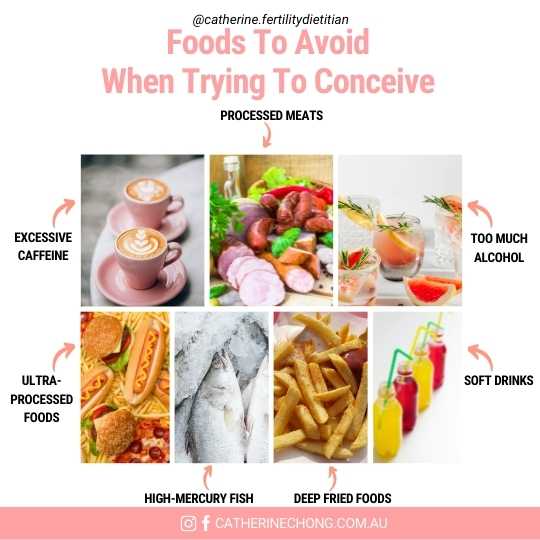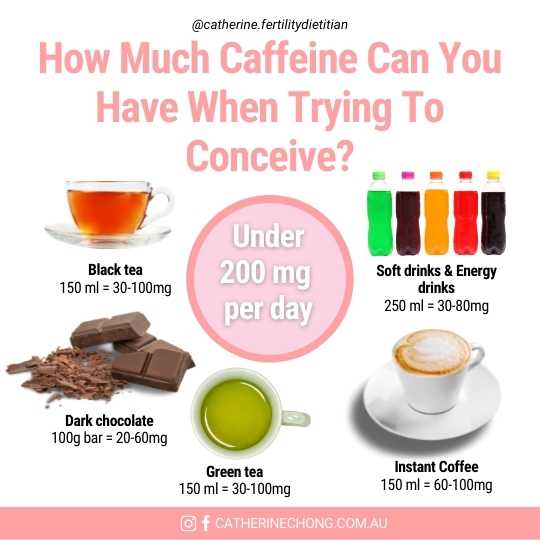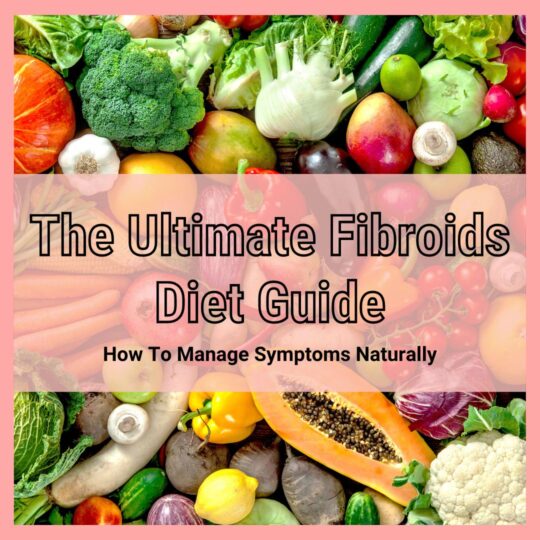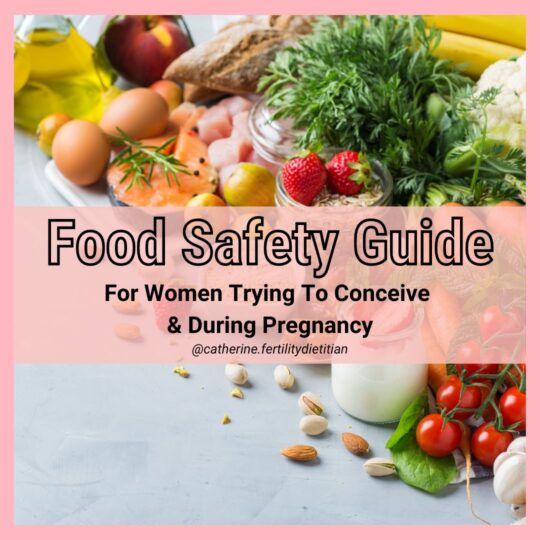Foods To Avoid When Trying To Get Pregnant
A healthy eating pattern and lifestyle rich in fertile foods, such as fruits, vegetables, whole grains, fish and seafood, can help increase fertility and provide health benefits for a mother and their growing baby. However, some foods can reduce your chances of conceiving.
This blog post shows you which foods are worth steering clear of to increase your fertility. Here are five foods you should avoid while trying to get pregnant, as they can make you less fertile:

1. Sugar-Sweetened Beverages
A recent study by the Boston University School of Public Health found that the intake of one or more sugar-sweetened beverages per day is associated
with a decreased chance of getting pregnant.
Females who consumed at least one sugar-sweetened soda daily had a 25% reduction in fertility. For males, it was associated with a 33% reduction, and the intake of energy drinks was related to even more significant reductions in fertility.
2. Caffeinated Beverages

One prospective cohort study in 2018, which consisted of over 11,000 women, found a positive association between pre-pregnancy coffee consumption and the risk of early pregnancy loss. Compared to women with no pre-pregnancy coffee intake, women consuming ≥4 servings daily had a 20% increased risk of spontaneous abortion.
High doses of caffeine, notably soda and energy drinks, might affect male fertility and sperm DNA damage.
While it remains debatable whether women trying to conceive or are currently pregnant should avoid caffeine altogether. The current advice from major guidelines is that moderate caffeine consumption, less than 200 mg daily from all sources (approximately two standard instant cups of coffee), is safe during pregnancy.
3. Beverages Containing Artificial Sweeteners
Artificial sweeteners are often found in soft drinks, particularly those marketed as diet or low-sugar alternatives. Whilst this may sound like the healthier option, research has also found that artificial sweeteners can lower embryo implantation rates and negatively influence egg quality.
Some association has been made between consuming artificial sweeteners and poor sperm quality in men. However, the actual impact on fertility is still unclear.
4. Alcohol
In women, alcohol consumption can cause changes in ovulation and menstrual cycle, increase the risk of miscarriage and reduce the chance of successful infertility treatment. The mechanism by which alcohol could impair conception is unclear but may include an alcohol-induced rise in estrogen, which reduces follicle-stimulating hormone (FSH) secretion suppressing follicle development and ovulation.
Heavy alcohol consumption can negatively affect sperm motility, concentration, and morphology in men. There is an increase in the percentage of sperm with DNA fragmentation and apoptosis, and these epigenetic
changes can transfer to the next generations.
5. Saturated Fats & Trans Fats
Saturated- and trans-fats can negatively impact male and female fertility, and this is due to the inflammatory response these fats induce in the body. These types of fats have been associated with low semen quality in men. In women, high levels of saturated fats negatively impact several stages in the reproductive process, including the development and quality of eggs, egg fertilisation, and embryo implantation success.
Foods High In Trans Fats:
- Highly processed takeaway foods, e.g. hamburgers and pizza
- Deep-fried foods
- Cakes, biscuits and pastries
- Butter
- Any food that lists hydrogenated oils or partially hydrogenated vegetable oils as an ingredient
Foods High In Saturated Fats:
- Coconut and palm oil
- Butter
- Lard
- Ghee
- Red and processed meat
- Cream
- Ice cream
- Cakes, biscuits, pies and pastries
Need more help?
I’ve worked with many couples to increase their fertility to get pregnant sooner and nourish their body before pregnancy.
I can help you, too, by creating a personalised nutrition plan tailored to your fertility goals and unique body needs.


